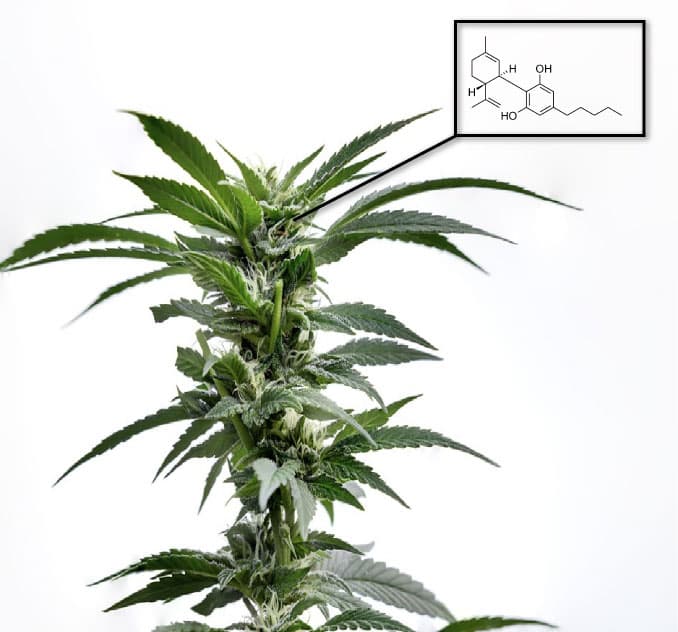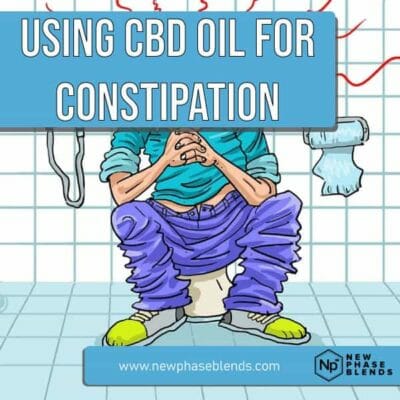Do you suffer from constipation? If so, you’re not alone. Constipation is a very common problem, and many different things can cause it. This blog post will discuss the use of CBD oil for constipation, and whether or not it works.
Keep reading to learn more!
What Is CBD Oil? How Would It Work For Constipation Relief?
CBD oil is a product that contains a natural extract from the cannabis plant. It is made by extracting CBD, or cannabidiol, from the cannabis plant and then diluting it with a carrier oil, such as hemp seed oil or coconut oil.

CBD oil is non-psychoactive, which does not cause the “high” associated with marijuana.
It has many benefits. CBD oil works by activating the cannabinoid receptors in the body. These receptors are responsible for many functions, including gut health and digestion.
When CBD oil is used, it helps to activate these receptors and improve gut health. This might help to relieve constipation and other digestive problems.
How to Use CBD Oil For Constipation Relief
CBD oil is becoming a popular treatment for a variety of medical conditions. While it’s not a cure-all, it can be an effective treatment for constipation. Taking CBD oil could relax the muscles in the digestive tract, which can help relieve constipation.
If you are experiencing a more severe form of constipation, CBD oil may not be enough for you. Consult your doctor if you feel it is a serious form of constipation.
If you’re looking for relief from constipation, you can do a few things. To prevent it, try using CBD oil as part of your daily vitamin regimen. CBD oil is available in tinctures, capsules, and edibles. You can take it orally or add it to your food.
You can also try eating high-fiber foods. Foods like fruits, vegetables, and whole grains are high in fiber. Fiber helps to promote regularity and healthy digestion. Including high-fiber foods in your diet is probably going to help more in regards to constipation relief than simply taking CBD oil will.
Another thing you can do is drink plenty of fluids. Dehydration can lead to constipation, so drinking plenty of fluids, especially water.
Finally, try to get regular exercise. Exercise helps to keep the body healthy and can help relieve constipation.
The Benefits Of Using CBD Oil For Constipation Relief
If you are looking for a natural way to relieve constipation, CBD oil may be the answer. CBD oil is derived from cannabis and has been shown to help with various health issues. For those who are unaware, cannabis contains both the hemp plant and the marijuana plant under this species of plants.

When it comes to constipation, CBD oil can help by stimulating the digestive system and helping to move stool through the intestines.
CBD oil is safe and does not have any severe side effects. However, it may cause mild drowsiness. If you are taking other medications, talk to your doctor before using CBD oil.
There are many benefits of using CBD oil for constipation relief. Here are a few of the benefits:
- CBD oil is natural and non-toxic
- CBD oil may be effective for relieving constipation
- CBD oil is now more affordable and easy to find
- CBD oil has few side effects
Finding a Good CBD Oil
If you’re interested in using CBD oil for constipation relief, the first step is to find a reputable supplier.

Many companies sell CBD oil, so it’s essential to do your research and find a company that sells high-quality CBD oil.
Once you have found a trusted supplier, the next step is to decide how you want to use CBD oil. You can take it orally, apply it topically, or inhale it. If you are new to CBD oil, start with a small dose and increase as needed.
Side Effects of Using CBD Oil For Constipation Relief
CBD oil is generally safe to use, but it may cause side effects. The most common side effect is drowsiness. CBD oil may also cause mild nausea, dry mouth, or diarrhea.

These side effects are usually mild and temporary. If you experience any serious side effects, stop using CBD oil and talk to your doctor.
Related: How Much CBD Should I Take?
Precautions to Take When Using CBD Oil
There are a few precautions to take when using CBD oil for constipation relief:
- Talk to your doctor before using CBD oil if you are taking other medications
- Start with a small dose and increase as needed
- Do not use CBD oil if you are pregnant or breastfeeding
- Keep CBD oil out of reach of children. If you would like your children to use it, consult with their pediatrician first.
Related: CBD Gummies for Anxiety
The Bottom Line
CBD oil is a safe and effective way to relieve constipation. It can be taken orally, topically, or inhaled, depending on your preference.

CBD oil has few side effects and is affordable and easy to find. If you are looking for a natural way to relieve constipation, CBD oil may be the answer.












